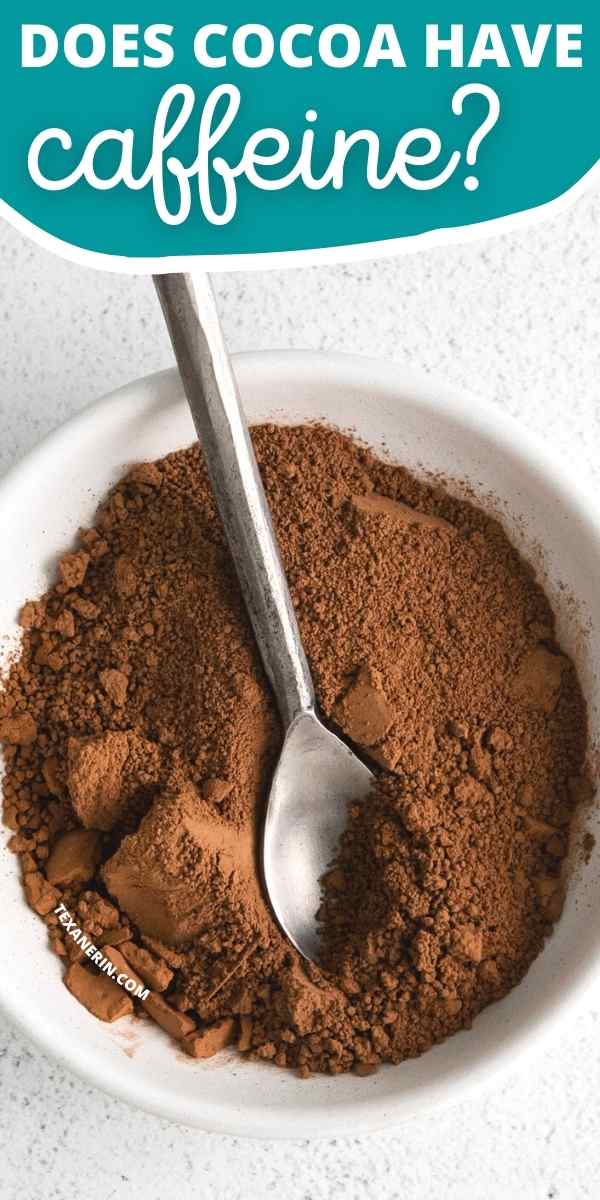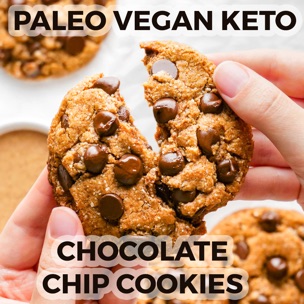Does cocoa have caffeine? Yes, it does! Find out how much in comparison to coffee and which is better.
Cocoa beverages are often thought of as calming winter beverages, but they can also be used as an afternoon pick-me-up. How so? Caffeine.
When enjoying a cup of steaming hot chocolate, the last thing you may be concerned about is the quantity of caffeine in cocoa powder. Well, cocoa powder does contain caffeine, just like tea, soda, and coffee. As such, if you’re trying to limit your caffeine intake cocoa is one of the ones to stay wary of.
Caffeine in cocoa powder
Caffeine is a naturally occurring stimulant that’s commonly utilized to give you a boost of energy. Pure cocoa powder contains caffeine as a natural component.
One tablespoon of pure cocoa powder contains 12 milligrams of caffeine. That’s about an eighth of the amount of caffeine in an 8-ounce cup of coffee.
According to the USDA, 3.5 ounces, or 100 grams of sweetened cocoa powder contains about 230 milligrams of caffeine.
Further processing, such as “Dutching” or Dutch cocoa, reduces caffeine by around two-thirds while also reducing flavanols and other health-promoting components.
Because you’re probably more interested in the powder’s enticing fragrance and palate-pleasing usage, the amount of caffeine in cocoa powder is more of an afterthought. Cocoa powder, however, has a significant amount of caffeine. As such, if you’re sensitive to caffeine, the caffeine content of cocoa powder is something to consider.
Decaffeinated cocoa powder
Luckily, if you’re a sucker for hot cocoa but are sensitive to caffeine, there is a solution — decaffeinated cocoa powder. Decaffeination is a method used to lower the caffeine content of cocoa powder and other drinks.
The resulting cocoa powder normally maintains its useful components like theobromine and polyphenols while drastically minimizing the harmful effects of caffeine on your body. This is because it aims to reduce the caffeine, which it reduces by about 80.1% while leaving nearly all of the polyphenols and theobromine intact.
I found one brand, called Supercocoa, that is decaf. If you know of any others, please let me know!
Hot chocolate and caffeine
Hot chocolate produced with cocoa powder, rather than chocolate, has a lower caffeine content. Nevertheless, the amount of caffeine in hot chocolate varies depending on how it was created. A 16-ounce (oz.) cup of Starbucks’ hot chocolate, for example, has 25 milligrams (mg) of caffeine.
Also, the brand of the hot cocoa mix also determines how much caffeine your cup of chocolate contains. For example, one 6-ounce cup of hot chocolate made from a Swiss Miss packet of their basic hot chocolate mix contains only 5 mg of caffeine. To put this into perspective, you may compare other brands to know their caffeine content.

Caffeine in Cocoa vs. Coffee
While a 3.5-ounce serving of unsweetened cocoa powder has 230 mg of caffeine, the caffeine amount of coffee varies greatly due to a variety of factors. These include:
- Source of the coffee
- Processing method
- Brewing technique
- Brewing time
However, the caffeine content in an eight-ounce cup of brewed ordinary coffee ranges from 95 to 165 mg. On the other hand, an eight-ounce cup of decaf coffee only has two to five milligrams of caffeine and none if it’s a one-ounce serving of decaf espresso. Here are more comparisons:
- Instant coffee – 63 mg of caffeine per cup (8 oz.)
- Regular (black) – 95 mg of caffeine in 1 cup (8 oz.)
- Mocha/Latte – 63-126 mg of caffeine per cup (8 oz.)
- Decaf – roughly 2 mg of caffeine per cup (8 oz.)
- Espresso – 1 shot (30 ml) contains roughly 63 mg of caffeine.
- Starbucks’ cold brew – 360 mg of caffeine in a 30 oz (Trenta) and 155 mg of caffeine in a 12 oz. (tall) portion
Coffee contains a significant amount of caffeine. That said, it’s worth mentioning that caffeine usage at high levels might have some unwanted side effects.
It may be necessary to minimize your coffee consumption if you consume more than 400 mg of caffeine per day. You might want to consider switching to decaf coffee for one or two cups of your favorite caffeinated coffee.
Should I opt for Cocoa Over Coffee?
In a head-to-head comparison between cocoa and coffee, cocoa comes out on top in terms of nutrition. Cocoa is high in flavanols, a plant-based vitamin found in many meals and beverages. These cocoa flavanols have been shown to counteract cell damage, lower blood pressure, prevent deadly blood clots, boost brain activity, and enhance heart blood circulation.
Coffee also has its fair share of health benefits. It helps to prevent chronic diseases like liver disease and Type 2 diabetes. It also boosts energy levels and alertness thanks to its high caffeine content.
Healthwise, therefore, cocoa is definitely the way to go. When looking for a stimulant, however, coffee has better effects.
The Best of Both Worlds: Chocolate-Covered Espresso Beans
Try chocolate-covered espresso beans if you want the best of both worlds. They’re a delectable delicacy that will appeal to both coffee and chocolate lovers.
Some people consider chocolate-covered espresso beans to be junk food, but they actually carry nutritional value, as well as, a culinary punch: both chocolate and espresso contain antioxidants, which may help prevent diseases.
I hope I’ve answered your question! Have any others? Leave them below and I’d be glad to answer!


